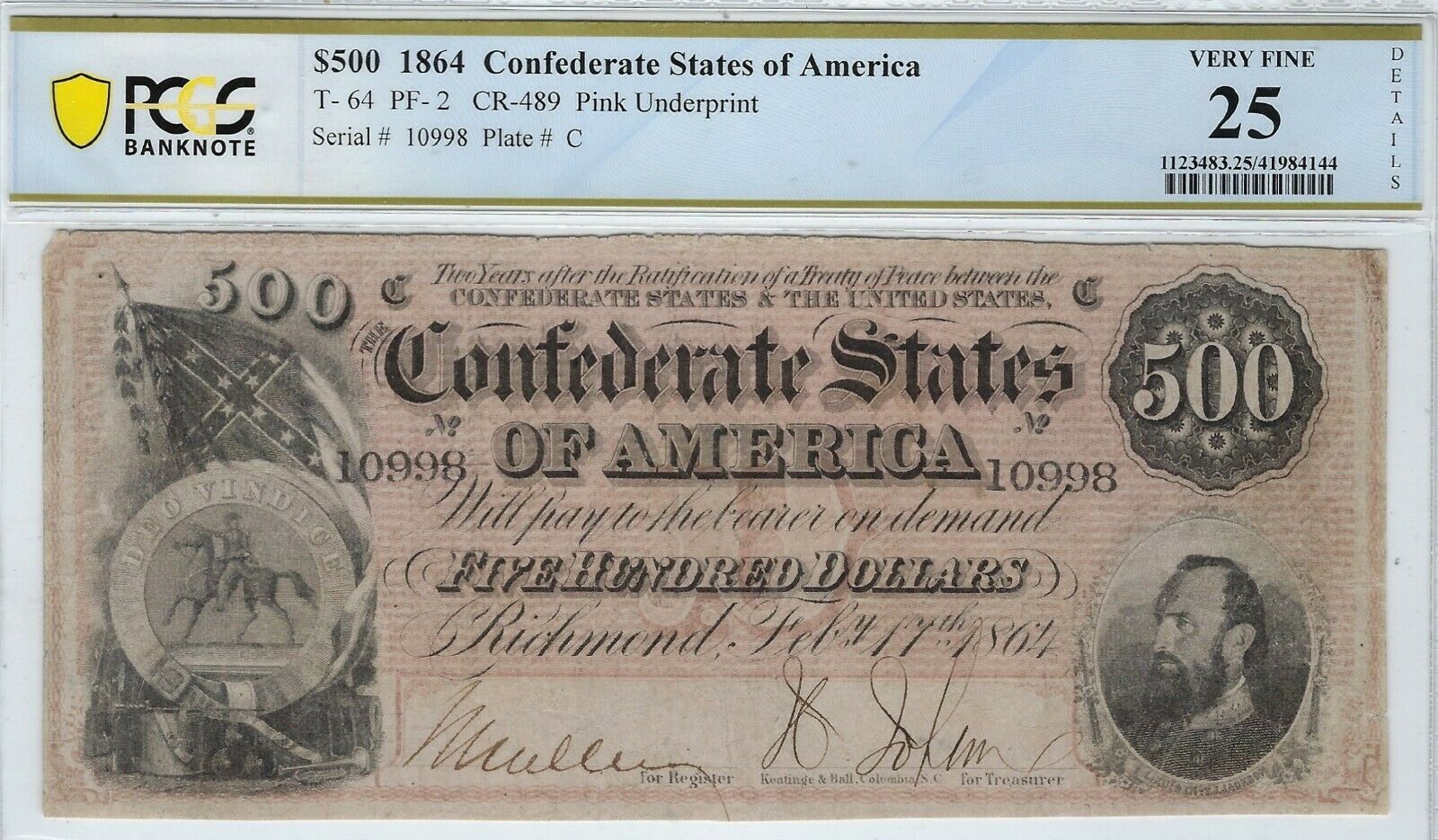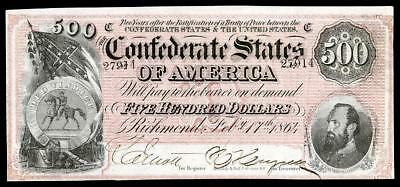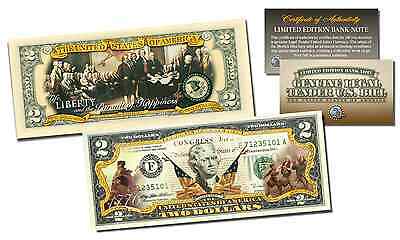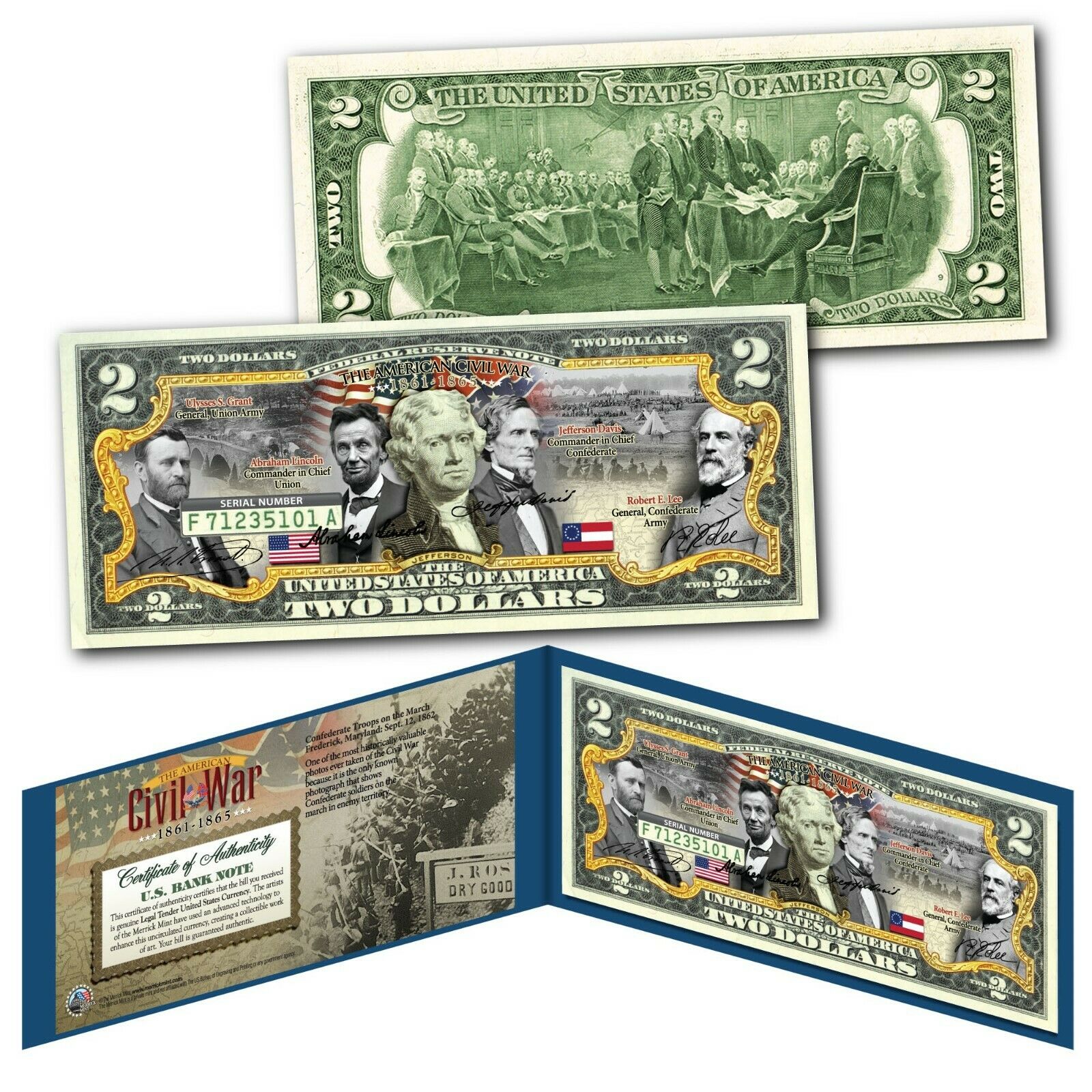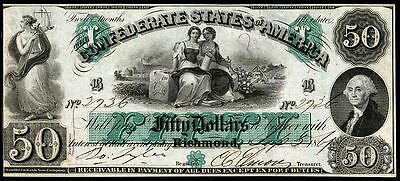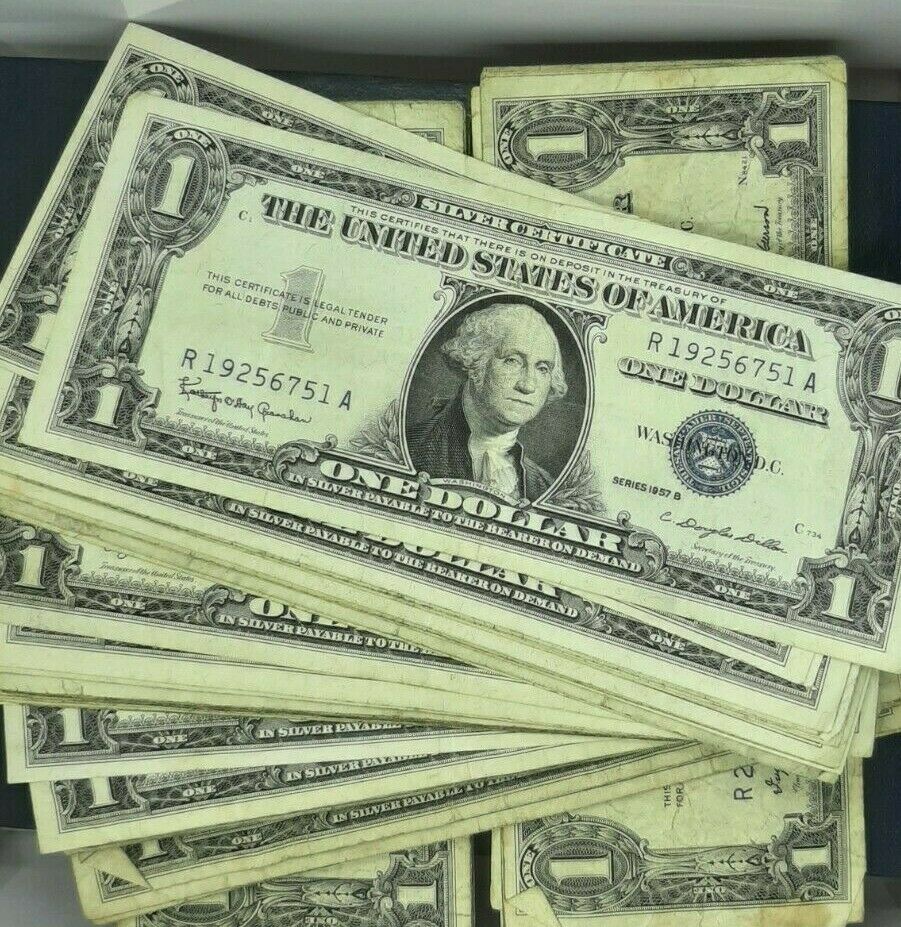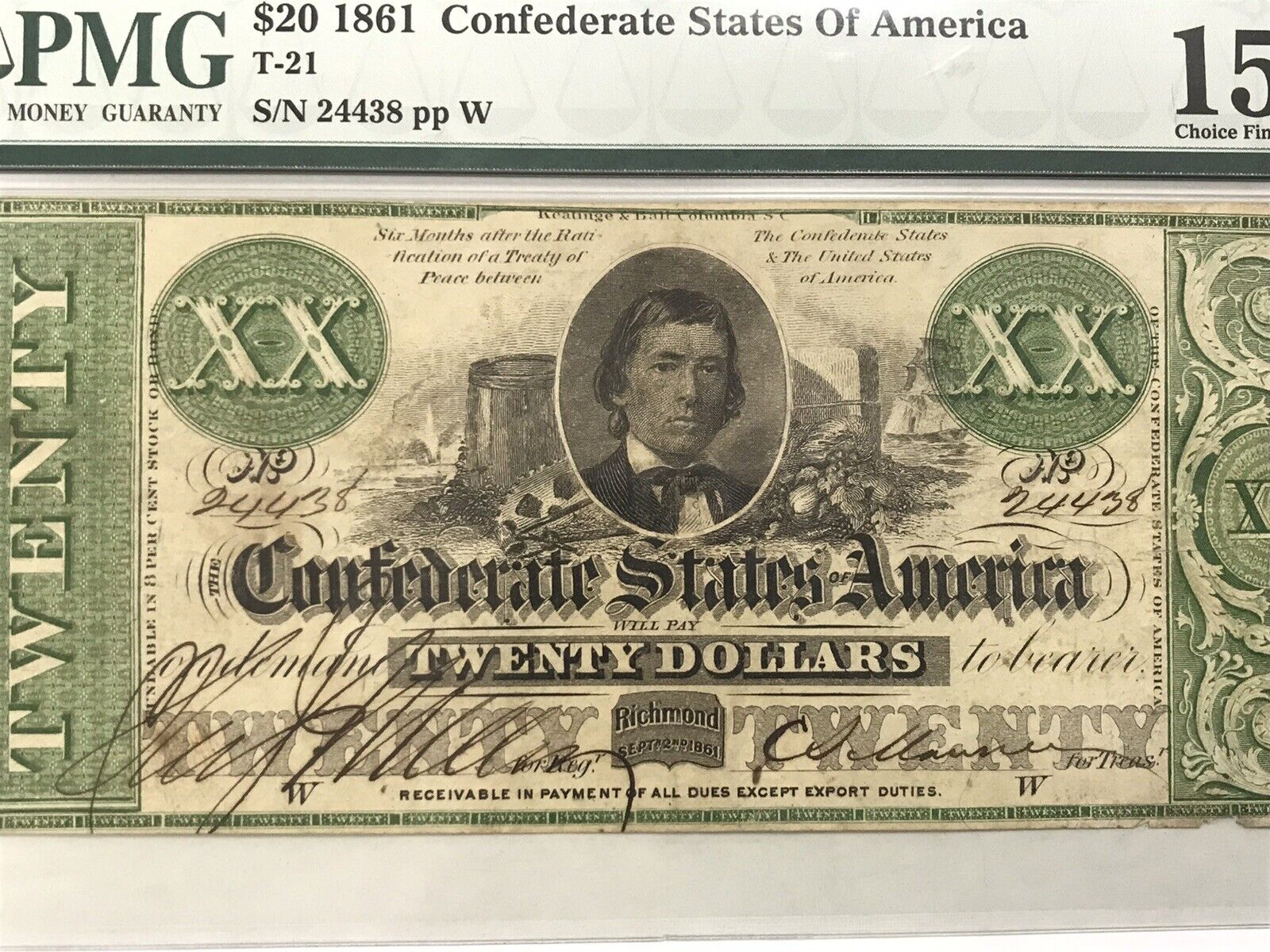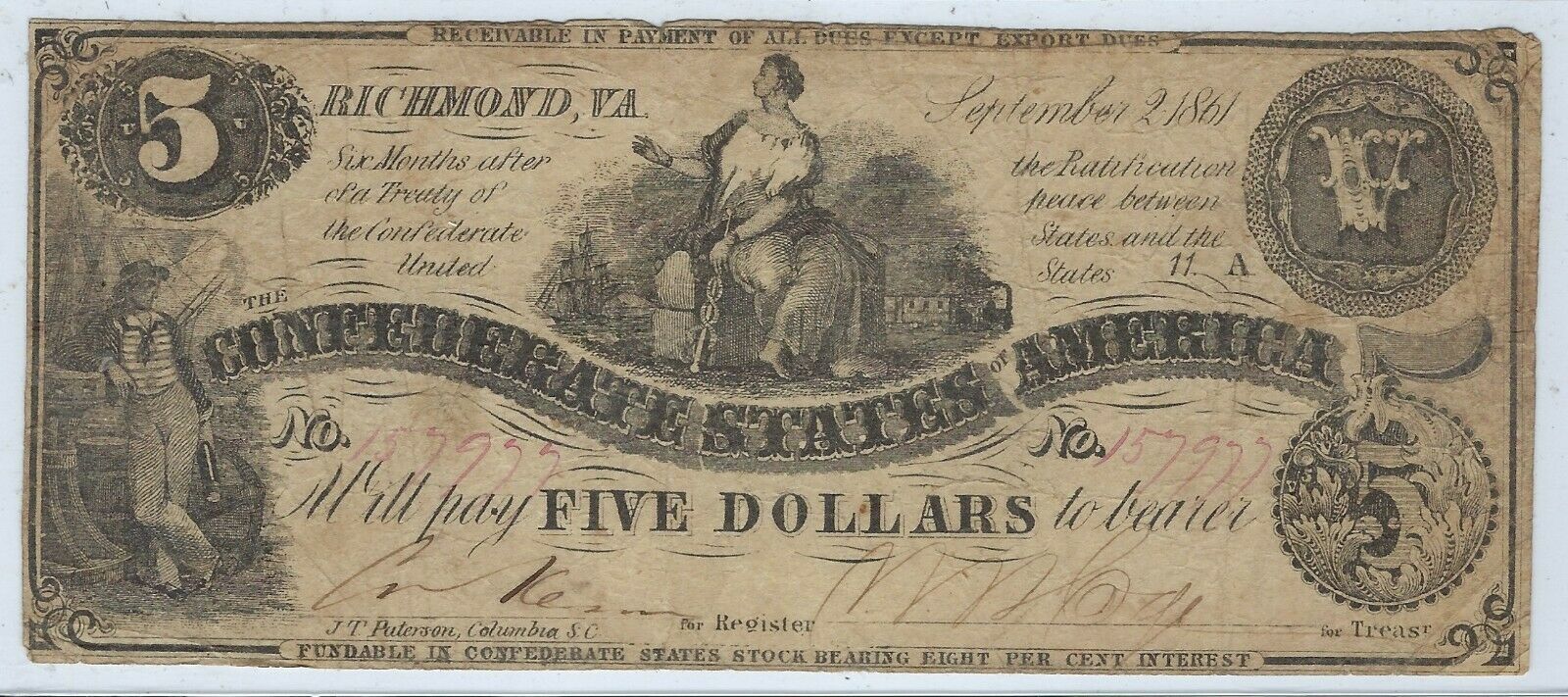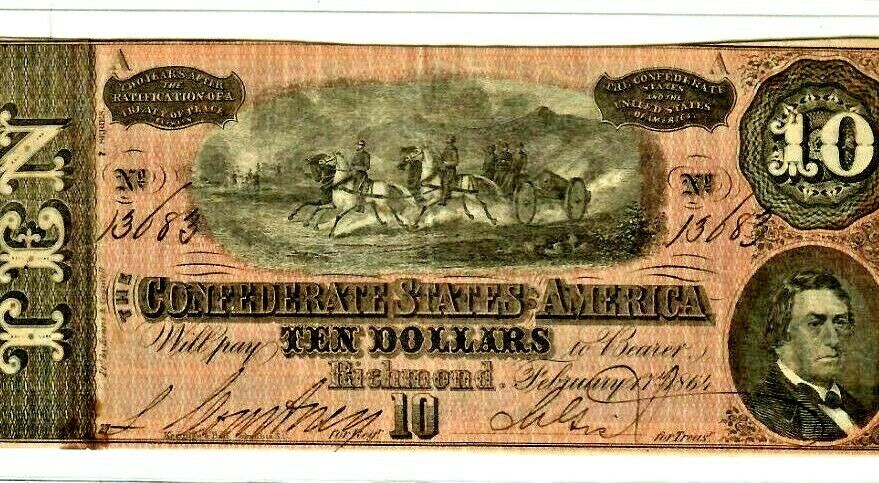-40%
T-64 PF-2 0 1864 Confederate Paper Money - PMG Very Fine 25 Details
$ 198
- Description
- Size Guide
Description
T-64 PF-2 0.00 CSA Currency.Confederate seal and battle flag to the left. General Thomas “Stonewall” Jackson to the right.
Serial number 10998. Plen C.
PCGS Banknote Very Fine 25 Details. Masked stains, this appears to be some minor foreign substance. Small edge tears. Nice color and clean presentation.
Genuine.
The T-64 was the second 0 issued by the Confederacy and, unlike the T-2, this one was meant for circulation and did not bear interest. The Treasury used a machine to stamp the serial numbers onto the note when issuing them.
The right lower corner of the note has a vignette of General Thomas “Stonewall” Jackson who was wounded in battle by his own men at Chancellorsville in May 1863 and died days later. He is the only Confederate general to appear on its paper money. At left is the Great Seal of the Confederacy with George Washington on a horse surrounded by the motto “Deo Vindice: which means “God vindicates”. This note was payable two years after the ratification of a Treaty of Peace between the Confederate States and United States.
This type comes on high quality bank note paper. The note has an underprint of either light red, dusty pink or bright red lines with the latter in greater demand by collectors. They are interesting collectible notes and light and dark red T-64s command a premium.
The original underprint for T-64 was red. Early notes up through about serial number 6000 were mostly this red color or something close. At some point the printers realized their supply of red ink was dwindling. It was diluted to make it last longer and a dusty pink color, instead of red, became prominent on the 0s. With each dilution of the ink, the now pink underprint became progressively weaker. At some point the printer ran out of red ink and it is believed a few sheets received only the black design print, were sent on to Richmond and were subsequently signed. When a new supply of red ink was finally received and printing was resumed in the normal manner, the signed sheets, without red or pink tint, were returned to Columbia where they received a now bright red overprint. This anomaly has only been found on a few high serial number examples and doesn't apply to the whole high number series.
[1]
[1]
Source: Crutch Williams.
A note about 3rd party grading. PCGS and PMG do a good job putting a floor on quality within a grade range and have become proficient in detecting repairs (though occasionally they miss something, or see something that is not there, as we all can).
Notes housed in Net or Apparent holders have a wide range of quality from very nice (in rare cases may be nearly choice) to dogs with major problems, so each needs to be evaluated on their own.
However, PMG and PCGS focus on technical grading due to circulation and damage and do not have a mechanism for evaluating condition or eye appeal - whether a note is average, better than average, choice or gem for the grade based on its color, trim and margins. The exception to this are slabbed notes of New or Uncirculated grades to some degree. This is important as Very Fine, Extremely Fine or AU notes can have a wide range of values depending on these factors not reflected in the slab grade. A fully framed Confederate or obsolete note is worth considerably to a lot more than one that is trimmed into the margin for the same grade. Likewise, color is important. These factors can affect the value of a note by 50%, 2-1 or even 3-1, e.g., an AU 58 (PPQ or not) T-20 1861 CSA note trimmed into the margin is worth between 0 and 0. The same grade, AU 58 (PPQ or not), with a full frame and good color/inking is worth something like 0 to 00 depending on eye appeal. I will continue to use the terms plus for above average, choice and gem to mean varying degrees of superiority of condition and eye appeal of a note within a grade as documented in my book which is based on what collectors seek out and pay premiums for.
In coins, we’ve seen the third party graders add things like full bell lines, full head, full bands which reflected the market. I’d expect either the grading services or another party to do the same for paper money. If you are just buying the number on the holder for the best price, you may well be buying low end notes for the grade!
Pierre Fricke. Immediate Past President of the Society of Paper Money Collectors; Professional Numismatists Guild (PNG); Professional Currency Dealers Association (PCDA); ANA, EAC, etc...
BuyVintageMoney.
Author of the standard guide book to Confederate money - Collecting Confederate Money Field Edition 2014.
Free shipping and insurance.
eBay has announced that it will start to collect sales tax on behalf of sellers for items shipped to customers in Alabama (Jul 1), Connecticut (Apr 1), Iowa (Feb 1), Minnesota (Jan 1), New Jersey (May 1), Oklahoma (Jul 1), Pennsylvania (Jul 1), and Washington (Jan 1). Additional states are being added like Idaho and more than 20 others. This is the new internet tax out of the US Supreme Court Wayfair decision. Buyers are responsible for paying this sales tax.
See eBay information for list of states eBay charges this tax payable by buyers to eBay as part of eBay invoices -- https://www.ebay.com/help/selling/fees-credits-invoices/taxes-import-charges?id=4121#section4
